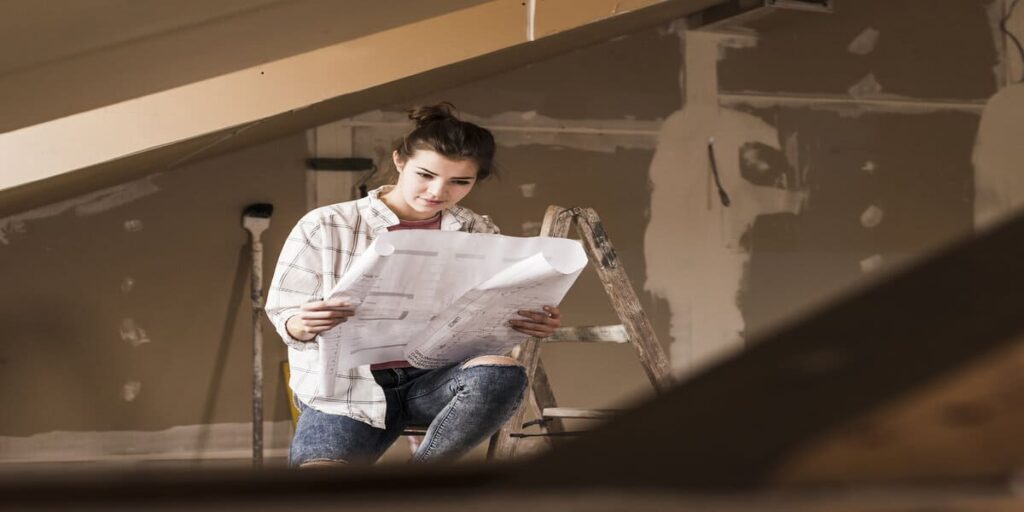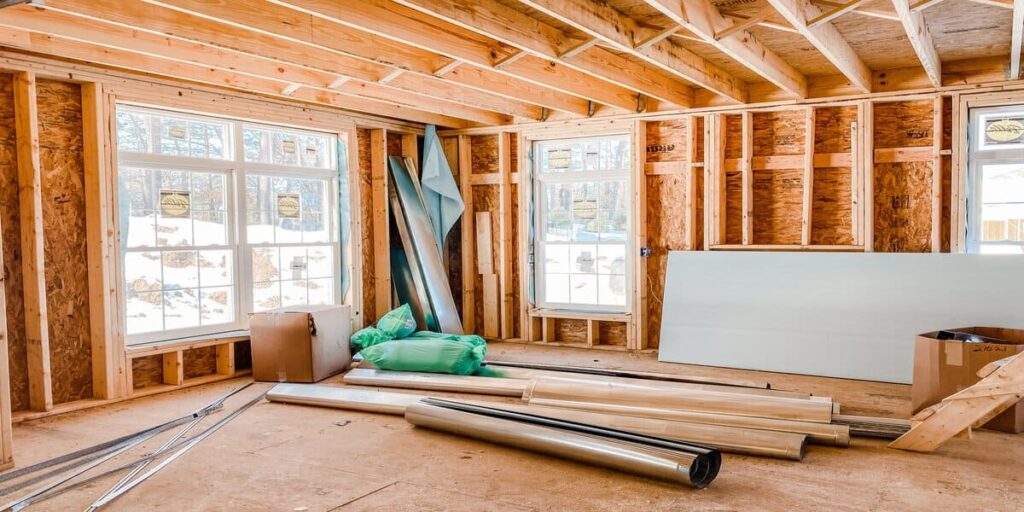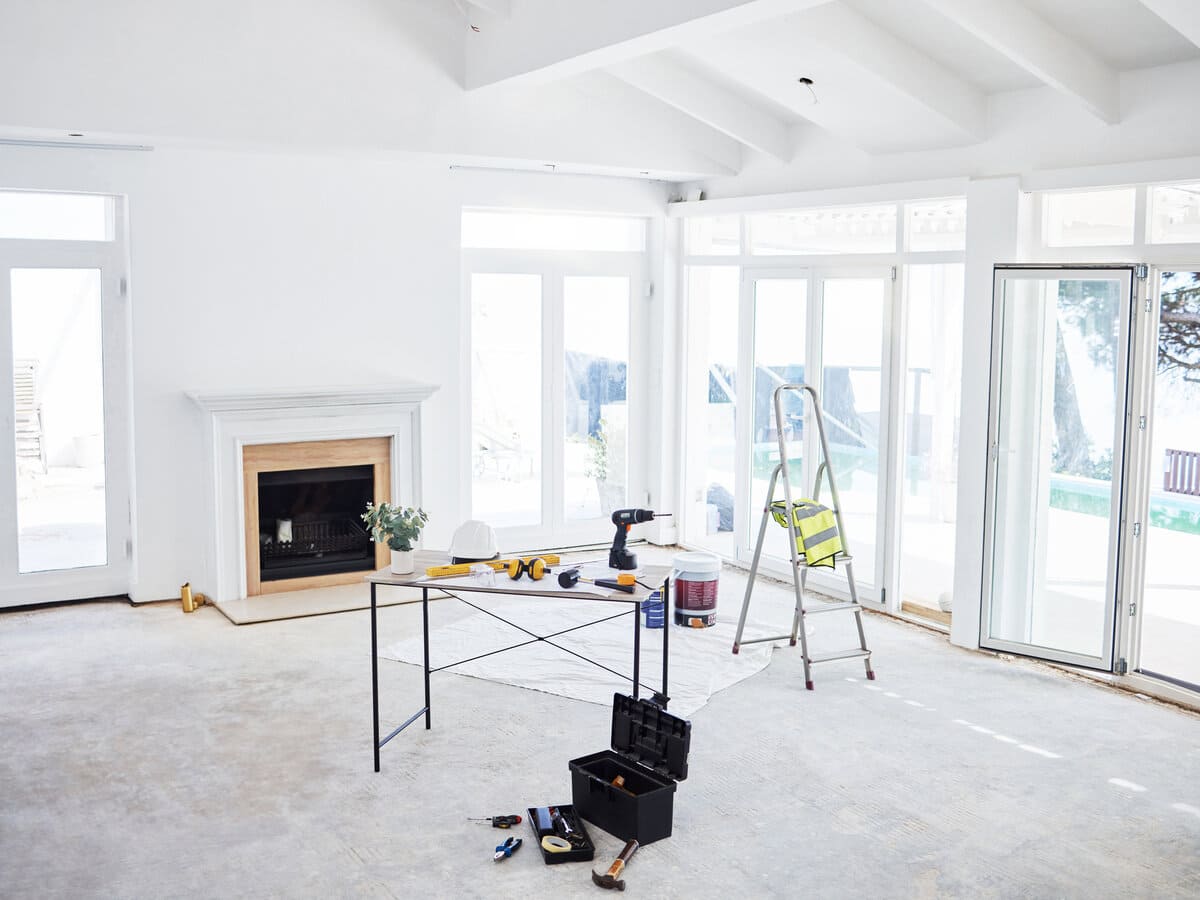Home renovation or home reno is making improvements or remodeling a home. This can include updating outdated features, adding new elements, or repairing any damages. Home renovation can range from small changes like painting a room to larger projects like building an additional room. It is often done to improve the functionality and aesthetics of a home, increase its value, or customize it better to fit the needs and preferences of the homeowners. Home renovation involves careful planning, budgeting, and coordination with contractors or DIY work.
Importance of Proper Material Ordering in Home Reno
Proper material ordering is crucial for a successful home renovation project. It ensures the right materials are available at the right time, minimizing delays and avoiding costly mistakes. Ordering materials in advance also allows for better budgeting, as it gives homeowners a clear idea of the total cost of their project and prevents any unexpected expenses. Additionally, proper material ordering can help streamline the construction process and prevent any last-minute changes or substitutions that may compromise the quality of the renovation.

Understanding the Scope of Your Project
Before ordering materials for your home renovation, it is essential to have a thorough understanding of the project’s scope. This includes knowing exactly what changes you want to make, the timeline for each task, and the specific materials needed for each aspect of the project. It is also important to be realistic about your timeline and budget. This will help you determine which materials are necessary and which can be substituted or eliminated to stay within your budget.
Another crucial aspect of understanding the scope of your project is knowing what materials are needed for each task. For example, if you plan to replace flooring, consider the type of flooring material, installation tools, and any additional materials like adhesive or underlayment. Knowing the specific materials needed for each task will help you make more accurate and efficient orders, preventing delays or last-minute trips to the store.
Researching and Comparing Prices
Researching and comparing prices is a step in ordering materials for home renovation. It allows homeowners to find the best deals and save money while getting high-quality materials. The first step is researching different suppliers or stores carrying your desired materials. You can do this online or by visiting physical locations. Once you have a list of potential suppliers, compare their prices for the same materials. Be sure to consider the delivery or shipping cost, which can significantly impact your budget.
Aside from comparing prices, it is also important to research and compare the quality of materials offered by different suppliers. A higher price may be worth it if the materials are of better quality and will last longer in your home renovation project. Reading reviews and asking questions can also help you better understand the material’s durability and effectiveness, helping you decide where to purchase it.
Consider Quality over Price
While staying within budget is important, it is also crucial to prioritize quality when ordering materials for a home renovation project. Choosing cheaper materials may seem cost-effective initially, but they may cost more in the long run if they need to be replaced or repaired frequently. Low-quality materials can also compromise the safety and durability of your renovation, leading to potential hazards or additional expenses down the line.
High-quality materials can save time and money, requiring less maintenance and replacements. They can also improve your home’s look and feel, increasing its value and appeal. When considering quality over price, factor in any warranties or guarantees the supplier offers. This can provide added protection and peace of mind in case any issues arise with the materials.

Ordering in Bulk vs Buying as Needed
When ordering materials for a home renovation project, one must also consider buying in bulk or purchasing with limited storage space; purchasing items as needed may be more practical items as needed. Buying in bulk saves costs since many suppliers offer discounts for larger orders. It also ensures all necessary materials are on hand and prevents delays due to out-of-stock items. However, buying in bulk may not be suitable for all projects. If you are unsure of the exact quantity needed or have limited storage space, purchasing items as needed may be more practical. This also allows for flexibility in case any changes or adjustments need to be made to the project.
On the other hand, buying as needed can result in higher costs due to smaller orders and potential price differences from suppliers. It may also lead to delays if items need to be ordered and shipped, causing work to be put on hold. In some cases, buying as needed may also result in unexpected expenses if materials need to be replaced due to incorrect or insufficient amounts being initially purchased. However, it can also help homeowners stay within their budget by only purchasing what is necessary for each task.
Delivery Options and Timing
Consider delivery options and timing when ordering materials for a home renovation project. Some suppliers offer discounted delivery, while others may charge for shipping based on the quantity or weight of the materials. Investigating these costs is crucial when budgeting for your renovation project. Additionally, it is essential to communicate with the supplier about their estimated delivery times to ensure that materials will arrive when needed for each task.
Sometimes, scheduling deliveries in advance may also be beneficial, especially for larger or bulk orders. This allows homeowners to plan accordingly and adjust their timeline for unexpected delivery delays. Having someone available to receive the materials during the scheduled delivery time is also important, as this can prevent additional charges for missed or rescheduled deliveries.
Maintaining an Organized Inventory
Maintaining an organized inventory is crucial for any home renovation project. This involves keeping track of all materials ordered and received, their quantities, and their locations in the home. One way to do this is to create a spreadsheet or use inventory management software to record each item’s details. This can help prevent ordering duplicate items or forgetting important materials for specific tasks. It can also aid in identifying any missing or incorrect items, allowing for quick resolution with the supplier.
A designated storage area for materials is also important to maintain an organized inventory. This allows homeowners to easily locate and access materials when needed, preventing delays in the construction process. Labeling shelves or containers can improve organization and efficiency, especially when working with multiple materials. By keeping an organized inventory, homeowners can also keep track of their budget and expenses, ensuring they stay within their planned renovation costs.

Communicating with Contractors
Effective communication with contractors is crucial in any home renovation project. This involves discussing the materials needed for the project, their budget and availability, and any potential changes or adjustments that may arise during the construction process. By clearly communicating expectations and timelines, homeowners can ensure that contractors have all necessary materials on hand to complete each task efficiently.
Regular check-ins and updates with contractors can also help identify potential issues or delays, allowing for quick resolutions and adjustments. Effective communication between homeowners and contractors is key to a successful renovation project. It ensures all parties are on the same page and working towards the same goal. It also allows for open discussions about materials and budget, preventing misunderstandings or unexpected expenses.
Being Flexible and Adaptable
Home renovation projects often involve surprises or changes, so homeowners must be flexible and adaptable. Despite careful planning and organization, unforeseen circumstances such as weather delays, material shortages, or contractor availability may arise. By being flexible and open to adjustments, homeowners can better navigate these challenges and keep the project on track.
Being adaptable also means being open to alternative materials or solutions if necessary. For example, suppose a specific material becomes unavailable or is not within the budget. In that case, homeowners may need to consider other options that still align with their overall design and vision for the project. This can help prevent delays and keep costs under control while still achieving the desired result. Ultimately, being flexible and adaptable allows homeowners to navigate any obstacles during a home renovation project and reach their end goal.
Proper planning is ideal for a successful home renovation project. This includes carefully considering purchasing options, timely delivery, organized inventory, and effective communication with contractors. Additionally, being flexible and adaptable can help homeowners navigate any challenges that arise during the construction process. Homeowners can ensure their renovation stays within budget and is completed efficiently and effectively.

Frequently Asked Questions
Is it necessary to have a designated storage area for materials during a home renovation project?
An organized storage area can help prevent delays and track materials and expenses throughout the project.
Can homeowners change or adjust their initial material list during the renovation process?
Yes, but it is important to communicate these changes with contractors and consider any potential impacts on the project timeline and budget.
What should homeowners do if a specific material becomes unavailable or is not within their budget?
Homeowners can consider alternative materials that still align with their vision for the project, but it’s important to discuss these changes with contractors and suppliers beforehand.
How can scheduling deliveries in advance benefit a home renovation project?
Scheduling deliveries in advance can help homeowners plan accordingly and prevent delays due to unexpected material shortages.
Is it necessary to keep track of expenses during a home renovation project?
Yes, maintaining an organized inventory and tracking expenses can ensure the project stays within budget and prevent misunderstandings or unexpected costs.



























